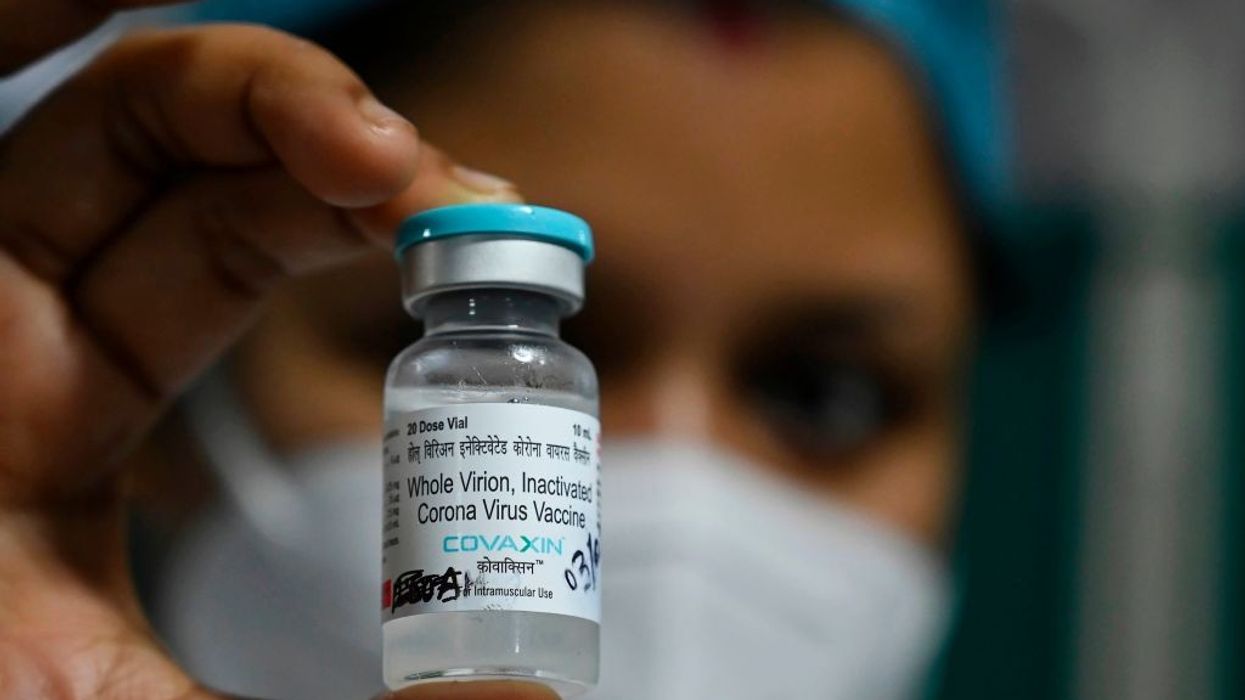INDIA's Bharat Biotech's vaccine showed 81 per cent efficacy in preventing symptomatic Covid-19 in an interim analysis of a late-stage trial in India, it said on Wednesday (3), a major boost for the shot shunned by some due to a lack of such data.
The positive result also brightens prospects for sales overseas, with the vaccine, India's first successful homemade Covid-19 shot, already attracting interest from more than 40 countries, according to the firm.
"COVAXIN demonstrates high clinical efficacy trend against Covid-19 but also significant immunogenicity against the rapidly emerging variants," Bharat Biotech Chairman Krishna Ella said in a statement, referring to its vaccine.
It said the analysis is based on 43 cases of Covid-19 patients who showed symptoms ranging from mild to moderate and severe, and of the total cases, 36 were from a placebo group, while seven were from those who received the vaccine.
The trials involved 25,800 subjects, the largest ever conducted in India, in partnership with the Indian Council of Medical Research, the Hyderabad-based company said in a statement.
The results come as India struggles to convince its health and front-line workers to take the Bharat Biotech shot, which was approved in January without late-stage efficacy data.
Only about 11 per cent of the more than 10 million Indians vaccinated had taken the Bharat Biotech shot as of last week, Reuters had reported.
Indian president Ram Nath Kovind was administered the first dose of Covid-19 vaccine at an army hospital on Wednesday and urged all eligible citizens to get vaccinated.
Modi's endorsement
Many ministers and officials, including prime minister Narendra Modi, have been inoculated with COVAXIN this week instead of a rival one developed by AstraZeneca Plc and Oxford University, as they seek to boost confidence in the locally developed COVAXIN.
India's health, foreign and law ministers, and state governors, all flocked to Twitter to express support for the much-criticised Bharat Biotech's COVAXIN vaccine, after it was administered to Modi on Monday (1).
"Made-in-India vaccines are 100 per cent safe," health minister Harsh Vardhan said after being inoculated with COVAXIN.
Many state officials and doctors have refused to take COVAXIN before its effectiveness could be proved. Bharat Biotech says it has completed the late-stage trial and results will be out this month.
The company said the endorsement by Modi and other ministers would set an example for other Indians and reduce "vaccine hesitancy".
COVAXIN and the AstraZeneca vaccines were approved by India's regulator in January. The government has distributed to states a total of 50 million doses of the vaccines but only 12 per cent of the 12 million people immunised so far have taken COVAXIN, according to government data.
With more than 11 million infections so far, India is battling the world's largest COVID-19 outbreak outside the US.
COVAXIN, which can be stored at normal refrigerator temperatures, is likely to be effective against the UK strain of the coronavirus, a study said in late January. The shot is an inactivated vaccine that introduces dead virus into the body to trigger an immune response.
Bharat Biotech began operations in 1996, and has delivered over 3 billion doses globally of various types of vaccines, including ones for Hepatitis-B and typhoid.
It is aiming to produce about 700 million doses of COVAXIN this year, a statement said.





